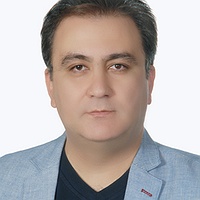1. Introduction
Masseter muscle rigidity is a known complication of drugs such as succinylcholine and volatile agents, especially in patients with underlying muscular diseases such as myotonia and malignant hyperthermia (MH). However, this complication can be seen following the administration of non-depolarizing muscle relaxants such as rocuronium, vecuronium, and pancuronium (1). In this case report, we present an otherwise healthy case who suffered from masseter spasm while anesthesia did not involve common guilty drugs.
2. Case Presentation
We report the case of a 56-year-old ASA-PS class I woman refereeing for colonoscopy due to chronic constipation under general anesthesia. She had a history of uneventful general anesthesia for appendectomy 2 years ago. We did not have any record denoting the drugs used for her previous anesthesia. In addition, she had a history of depression treated by Sertraline (total daily dose of 200 mg) up to 6 months ago. In the physical examination, there was no abnormal finding and the airway examination did not show any difficulty in ventilation or intubation. All laboratory tests were acceptable. After usual preparation and premedication with 2 mg of midazolam and 100 mcg of fentanyl, auto-co-induction was performed by 30 mg propofol. 3 minutes later, 70 mg (1 mg/Kg) propofol was injected intravenously for the induction of general anesthesia. Suddenly, the patient fell into an uncontrollable agitated state that forced us to inject another dose of propofol (70 mg) for deepening the anesthesia and use the oropharyngeal airway for maintaining mouth opening. A few seconds later, the patient was calm and became apneic, mandating bag ventilation via facemask, but difficult mouth opening and mask ventilation. At this time, we decided to terminate the procedure and awake the patient. Fortunately, after a few minutes, she began to breathe spontaneously and after a while, she regained her consciousness gradually. In all the time of anesthesia, hemodynamic changes and airway pressure were in an acceptable range. We did not detect either hyperthermia or increased end-tidal carbon dioxide concentration (in Capnography). Rigidity in other muscles was not detected either during anesthesia or in the post-anesthesia care unit. When the patient gained her complete consciousness, she complained of severe pain in jaws and neck and she described the jaws pain as a reason for agitation. After an uneventful recovery phase for an hour, the patient was transferred to the ward while she was treated by apotel and pethidine for the jaws and neck pain. A few days later, she had no pain and mouth opening was in the normal range again as before anesthesia. When we asked about the same experience in patient’s family, neither she nor her accompanying family could remember any relevant event. The patient did not come back to our center for completing the gastrointestinal investigation for her underlying discomfort anymore.
3. Discussion
Muscle rigidity is an uncommon complication of propofol and this hypnotic drug can be used to reduce muscle rigidity caused by other drugs such as succinylcholine in usual practice (2, 3). Muscle rigidity can be part of the serotonin syndrome caused by excessive amounts of serotonin in the central nervous system due to SSRI (selective serotonin reuptake inhibitor) overdose (4). Our case was a major depressive disordered woman treated for a long time with sertraline (total daily dose of 200 mg) up to 6 months before admission and she stopped her pharmacologic therapy arbitrarily. She was mentally in a good condition on the day of the procedure. Preoperative anxiety can be a predisposing factor to the occurrence of masseter muscle spasm maybe due to inducing involuntary clenching of jaws (5). In this case, masseter muscle spasm occurred immediately after an induction dose of propofol. Our patient had an easy airway predicted in pre-procedural airway examinations. She could open her mouth for more than 4 cm with normal mobility in the temporomandibular joint, but after administering 100 mg of propofol, difficult mouth opening prevented us to continue bag-valve-mask ventilation. At this time, we decided to maintain mouth opening with the use of oropharyngeal airway. Fortunately, the chest wall rigidity was not detected and ventilation continued without extreme difficulty after applying an oropharyngeal airway. In such cases, thinking of the probability of MH is rational because it is potentially fatal. For this purpose, temperature monitoring and looking for rigidity and spasm in other muscle groups are prudent (6).
3.1. Conclusion
Masseter spasm following the induction of anesthesia should not be considered limited to special drug groups. In any case of difficult mouth opening, masseter spasm should be kept in mind and deepening of anesthesia or complete blockade of neuromuscular junction should be considered by the use of non-depolarizing muscle relaxants.
